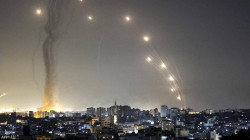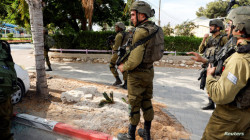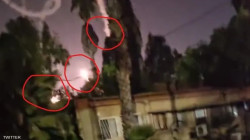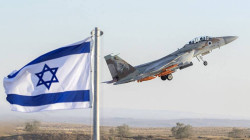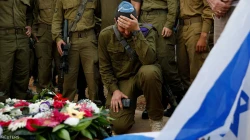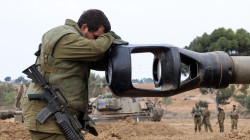Israeli reservists refuse to perform military service: war will not return hostages
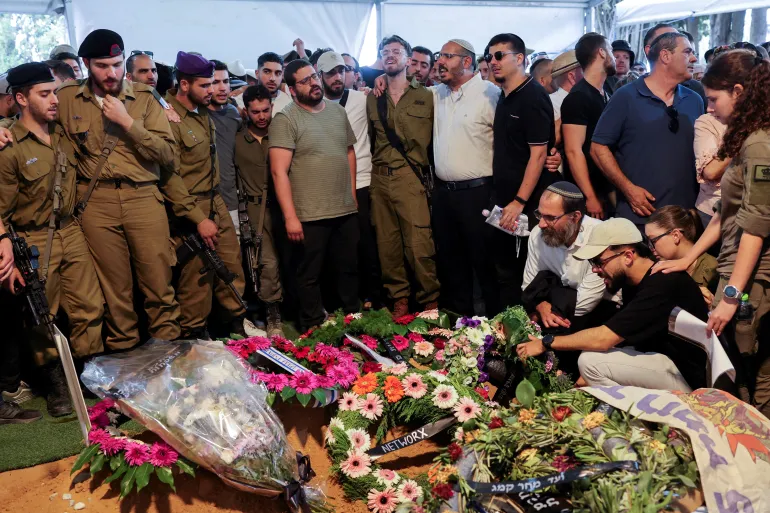
Shafaq News/ The Israeli newspaper "Haaretz" reported on Monday that 42 Israeli reservists signed a letter, refusing to perform military service, stressing that the war will not return the hostages to their families.
The newspaper affirmed that the letter is the first of its kind published by soldiers since the outbreak of the war on the Gaza Strip, and ten of the signatories wrote their full names, while the others contented themselves with signing with their initials.
The letter stated, "The first six months during which we participated in the war effort proved to us that military activity alone would not bring the hostages back home," and “this invasion, regardless of how it endangers our lives and the lives of innocent people in Rafah, will not return the hostages to Israel alive. It is either Rafah or the hostages, and we choose them.”
"Therefore, after the decision to enter Rafah instead of concluding a deal to exchange hostages, we - male and female reservists - declare that our conscience does not allow us to help those who want to sacrifice the lives of hostages and thwart another deal," reservists said in the letter.
The newspaper indicated that among the signatories were 16 members from Military Intelligence, 7 from the Home Front Command, and the others served in the infantry, engineering and tank units, while 2 of the signatories served in the commando units and the “Lotar” counter-terrorism unit.
Most of the signatories told Haaretz that they consider their views as an exception among reservists.
Three Israeli reservists who signed the letter explained to the Israeli newspaper the reasons for their refusal to continue performing military service in the Gaza Strip.
Among the three who agreed to reveal their names is Vardi, a tank corps commander whose reserve division was first sent to northern Israel to replace the conscript battalions transferred to the south.
His work in the north was particularly concerned with training younger reservists to operate old tanks after they had received training to fight with modern tanks.
Vardi confirmed to the newspaper that he would not mind serving if he was called back "to work in the north", but he would refuse if he was ordered to engage in the ongoing fighting.
For Vardi, the turning point came when Israel chose to conduct a ground operation in Rafah instead of signing an agreement to release hostages and end the war.
Haaretz quoted him as saying: “The moment the operation began in Rafah, I felt that the matter went beyond what I could feel, stand behind, or justify on a moral level.”
Among the three signatories of the letter who agreed to speak to the newspaper is Yuval Green (26 years old), a student who works as a paratrooper in the reserve forces. He admitted that even before October 7, 2023, he had been hesitant for a long time about continuing to perform reserve service, due to his opposition to the occupation and Israel's policy in the West Bank.
Green finally decided to stop performing reserve duty, and even wrote a letter about it to his fellow soldiers.
On October 8, 2023, Green was conscripted into the reserve forces, and after a few months of “training and missions in the north,” the division was sent to the Khan Yunis area in the southern Gaza Strip.
A few days after a deal to release 100 hostages failed, Green realized from radio reports that Israel was strongly rejecting the conditions set by the Islamic Resistance Movement "Hamas" for implementing a new agreement to end the war.
The newspaper noted in its report that the commander of the division in which Green worked asked him to burn the building in which he and his fellow soldiers were staying, after he left. The division had previously burned several houses, but this time Green did not understand why they were burning an apartment building.
According to Green, the division commander explained to him the necessity of setting fire to the building so that they would not leave military equipment there and reveal the army’s fighting methods, but he was not convinced by this justification.
The third signatory is Michael Ofer Ziv (29 years old) from Tel Aviv, who was a combat soldier in the Kfir Infantry Brigade. He later served as an operations officer in the 16th Brigade, where he had to cut short his vacation in Turkiye when he was called to serve during the war and was appointed as a surveillance officer in the brigade. From his position in the brigade, he was tracking the movement of the drones on display screens at the moment they bombed the Gaza Strip. He said that he could see from a distance those drones destroying vehicles, demolishing buildings, and killing people, and every time all the officers and soldiers around him shouted, “Awesome.”
There is another military intelligence reservist who signed the letter, whose first letter “A” was mentioned by Haaretz. Their refusal to perform military service was considered “political action.”
